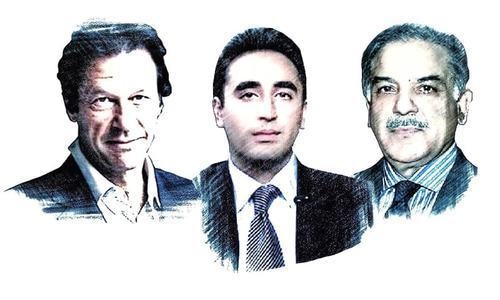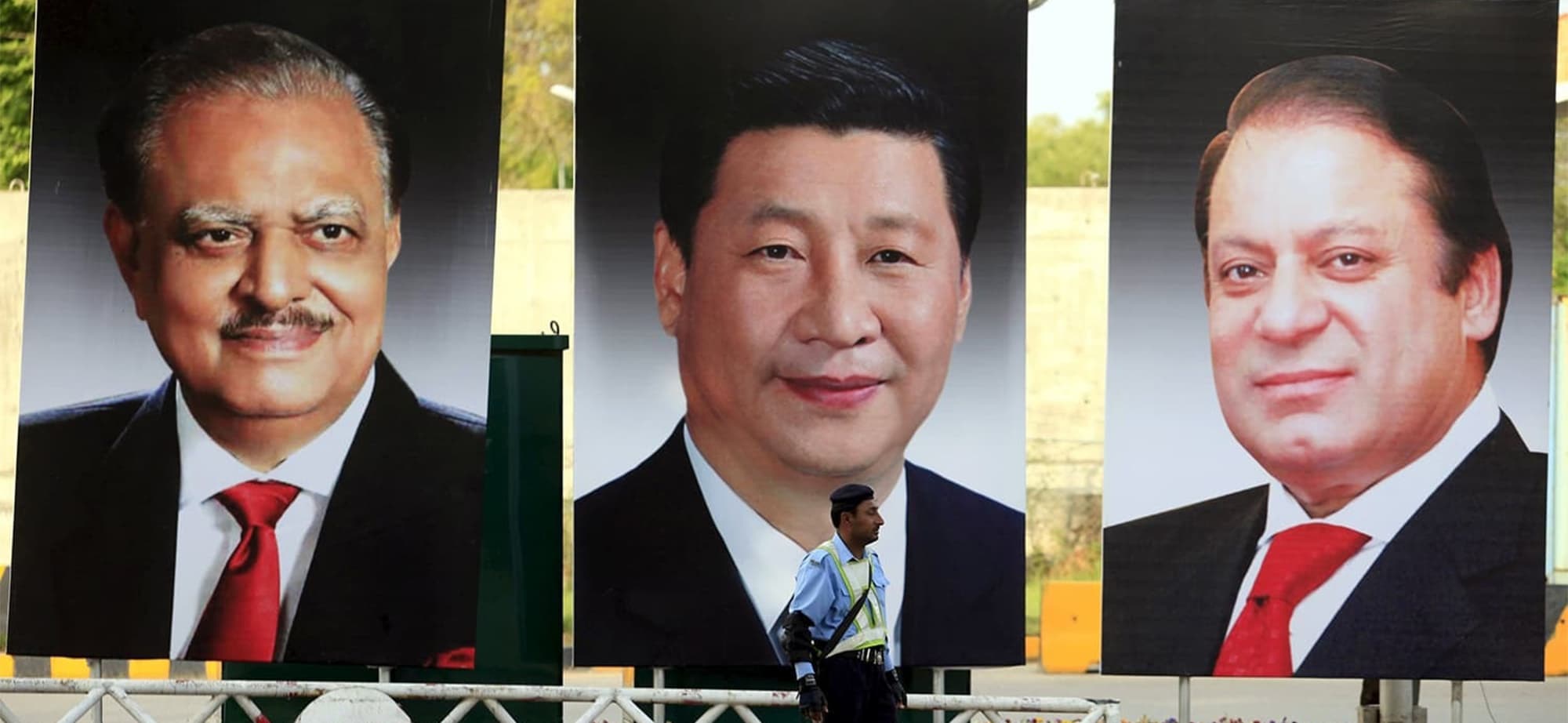End of a decade: Top 10 exclusive Dawn reports from 2010 to 2019
The decade which comes to an end on the midnight of December 31, 2019 was a period of seismic national developments that defined the country's present and will inevitably shape its future.
The 10-year stretch saw democratic systems taking root in Pakistan with consecutive transfers of civilian power and passage of major legislation that turned the country into a parliamentary republic. During this time, Pakistan also entered into a multi-billion dollar economic partnership with China, and waged a war against militancy.
Here, we list the 10 exclusive pieces published by Dawn over the past decade that saw the highest digital traffic.
10. Election 2018 survey results: And the winner is...
Published: 2018

2018 was an election year, and marked a historic second consecutive democratic transition in Pakistan's 70-plus year history. Before the Imran Khan-led Pakistan Tehreek-i-Insaf emerged victorious in the July 25 polls and went on to form government in the Centre and the Punjab, Dawn.com invited readers to share their thoughts and predictions on the 2018 general elections in an online survey. The snapshot, non-scientific survey that ran from July 4 to 9 was taken by more than 19,000 respondents.
Here's how our readers responded to the survey prompts.
9. The Dawn of Pakistan
Published: 2017

The decades-long struggle behind the creation of Pakistan efficiently encapsulated into a single article — this would be an accurate description of this Dawn exclusive published in June 2017.
Published ahead of Pakistan's 70th independence anniversary, this feature covers 42 years from 1906 to 1948, during which the freedom movement emerged and subsequently achieved the creation of a separate Muslim state under the leadership of Quaid-i-Azam Mohammad Ali Jinnah.
Read the in-depth piece, complete with heart-wrenching and rarely seen pictorial accounts from the Partition and of the nation's founder, here.
8. Of Aisha’s age at marriage
Published: 2012
"It is said that Hazrat Aisha was six years old when her nikah was performed with Prophet Muhammad (PBUH) in Makkah, and nine years old when she moved in to live with her husband in Madina after Hijra. This piece of misinformation has led to the wrong view that child marriage has the sanction of Islam."
In this piece published in 2012, Islamic scholar Nilofar Ahmed relies on historical facts and hadiths to debunk claims that often surround the subject of Hazrat Aisha's age at marriage.
The piece, which tackled a sensitive — and important — topic, can be read here.
7. Smoking dead scorpions is KP's latest dangerous addiction
Published: 2016

Heroin, opium, hashish — you may have read or heard about the abuse of various drugs across the country, but this Dawn.com piece from April 2016 shed light on an addiction in Khyber Pakhtunkhwa known to few outsiders: smoking dead scorpions.
“Hashish and heroin’s so-called relief is nothing in front of scorpion,” a 74-year-old man who quit smoking scorpions after years of addiction told journalist Izhar Ullah.
Read the piece here.
6. Who will be the next army chief?
Published: 2016
The build-up to the appointment of a new army chief, occurring every three years, is always a time of frenzy in Pakistan.

The anticipation was even greater in November 2016 as all candidates appeared to be evenly poised and there were no clear front-runners. The next chief of army staff also had big shoes to fill, for he would follow Gen Raheel Sharif, who garnered unprecedented popularity among the general public and was praised for leading the nation's anti-terrorism fight.
Before then-prime minister Nawaz Sharif went on to appoint Lt Gen Qamar Javed Bajwa as the new army chief, this Dawn piece by reporter Baqir Sajjad Syed gave an insight into the appointment process and the potential candidates.
See it here.
5. What is the most blatant lie taught through Pakistan textbooks?
Published: 2014
The allegation against history textbooks taught in schools in Pakistan (and in other South Asian countries) is that they present a distorted version of historical facts and that in turn is used to manipulate our sense of national identity.

But what is the most blatant lie taught through Pakistan textbooks?
To answer this highly subjective question, Herald magazine in this exclusive published in its August 2014 issue invited writers and commentators, well versed in history, to share what they believed is the boldest fallacy taught through Pakistani history textbooks.
Read the answers of these historians and scholars here.
4. The untold story of Pakistan’s blasphemy law
Published: 2014
Arguably one of the most contentious subjects of discussion, Pakistan's blasphemy law has made national and international headlines on numerous occasions over the past decade.
According to Lahore-based Centre for Social Justice, more than 1,500 people were charged under the blasphemy law between 1987 and 2017. At least 75 people were killed over that period in cases involving accusations of blasphemy, the group says.
But where do the origins of this highly divisive legislation lie? How did it come about and why was blasphemy declared an unpardonable offence in Pakistan?
Researcher Arafat Mazhar elucidates answers to the above through this 2014 Dawn.com blog, the first in a five-part series, titled The untold story of Pakistan’s blasphemy law.
Read the piece here.
3. 144 stories: the APS attack memorial
Published: 2015

Pakistan is no stranger to deadly violence at the hands of militants but the scale of tragedy caused by the horrific attack on the Army Public School in Peshawar on December 16, 2014, was unprecedented.
In an effort to not let the 144 victims of the massacre, most of whom were children, become just numbers, Dawn.com embarked on a monumental project that culminated in the form of a digital memorial that effectively eternised the lives lost.
Published on the attack's first anniversary, 144 stories comprises as many accounts "of courage and sadness of children, women and men whose absence will be forever painful, always remembered".
Explore it here.
2. Exclusive: CPEC master plan revealed
Published: 2017
Lawmakers, activists and newspaper editorials have demanded greater transparency in projects being executed under the $60+ billion China-Pakistan Economic Corridor (CPEC) from its inception.

In 2017, Dawn acquired exclusive access to the original document of the CPEC Long Term Plan (LTP), and its details were publicly disclosed for the first time by the newspaper. The plan laid out in detail China's intentions and priorities in Pakistan for the next decade and a half.
"The plan envisages a deep and broad-based penetration of most sectors of Pakistan’s economy as well as its society by Chinese enterprises and culture."
Read the article by journalist Khurram Husain here.
1. Exclusive: Act against militants or face international isolation, civilians tell military
Published: 2016
At the top of our most-read list of the decade (with 763,521 page views) is a story that is talked about to this day.

Published on October 6, 2016, the story by journalist Cyril Almeida, that later became known as 'Dawn leaks', reported details of a high-profile civil-military meeting discussing the issue of banned outfits in Pakistan. The then PML-N government rejected the story thrice as "factually incorrect" but went on to dismiss information minister Pervaiz Rashid from the cabinet, and later removed two other officers, as the fallout from the report's publication continued.
Dawn's editor stood by the news story, saying "more than one source confirmed and verified the details".
Read our top story of the decade here.
Header illustration by Mushba Said.





